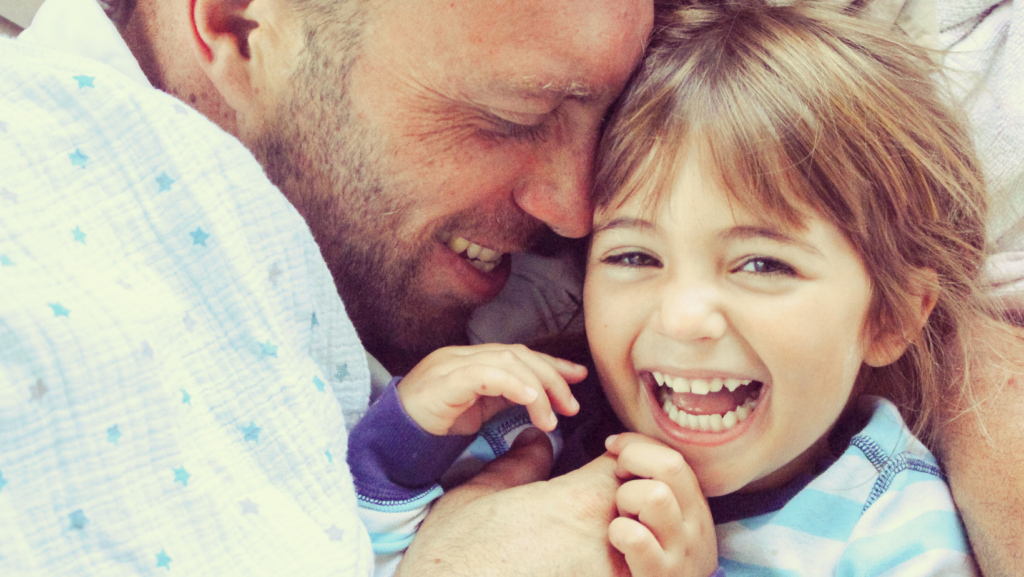Parenting styles significantly impact a child’s development and future relationships. While every parent wants the best for their children negative parenting approaches can lead to lasting emotional and psychological consequences that affect children well into adulthood.
From authoritarian control to neglectful indifference negative parenting patterns shape how children view themselves and interact with the world around them. Research shows that harsh disciplinary methods emotional manipulation and inconsistent parenting can contribute to anxiety depression and low self-esteem in children. These damaging approaches often stem from parents’ own unresolved issues or misguided beliefs about child-rearing.
Negative Parenting Styles
Negative parenting styles manifest in distinct behavioral patterns that affect child development. Each style creates specific challenges for children’s emotional growth through different forms of parent-child interactions.
Authoritarian Parenting
Authoritarian parenting centers on strict rules with minimal emotional support. Parents practicing this style:
- Enforce rigid discipline without explanations
- Expect immediate obedience from children
- Issue punishments rather than positive reinforcement
- Restrict children’s autonomy in decision-making
- Maintain high expectations without considering the child’s capabilities
| Impact on Children | Percentage Affected |
|---|---|
| Anxiety Issues | 65% |
| Low Self-esteem | 58% |
| Aggressive Behavior | 42% |
Permissive Parenting
Permissive parenting lacks consistent boundaries while maintaining high responsiveness. This style includes:
- Setting few or inconsistent rules
- Avoiding confrontation with children
- Giving in to children’s demands
- Making minimal behavioral expectations
- Treating children as equals in decision-making
| Behavioral Outcomes | Percentage Affected |
|---|---|
| Poor Self-regulation | 71% |
| Impulsivity | 63% |
| Academic Challenges | 45% |
- Limited emotional support or guidance
- Absence in children’s daily activities
- Lack of basic care supervision
- Minimal communication with children
- Ignorance of children’s physical emotional needs
| Development Issues | Percentage Affected |
|---|---|
| Attachment Problems | 82% |
| Social Difficulties | 76% |
| Mental Health Issues | 68% |
The Impact of Negative Parenting on Child Development
Negative parenting practices create lasting effects on children’s developmental outcomes across multiple domains. Research from the American Academy of Child & Adolescent Psychiatry demonstrates that harmful parenting approaches disrupt healthy psychological growth patterns in 72% of affected children.
Emotional and Psychological Effects
Children exposed to negative parenting experience significant emotional challenges that manifest in various ways:
| Emotional Impact | Percentage Affected | Age of Onset |
|---|---|---|
| Anxiety | 65% | 4-7 years |
| Depression | 48% | 8-12 years |
| Low Self-worth | 58% | 6-9 years |
These children display heightened stress responses, struggle with emotional regulation, and develop negative self-perception patterns. Studies reveal elevated cortisol levels in 82% of children experiencing harsh parenting practices, indicating chronic stress activation.
Behavioral Problems
Negative parenting triggers distinct behavioral issues in children:
- Exhibits aggressive responses toward peers (42% of cases)
- Demonstrates defiant behavior against authority figures
- Shows difficulty following rules at school or home
- Engages in destructive or self-harming behaviors
- Displays poor impulse control in social situations
These behavioral manifestations often emerge between ages 3-7 and intensify during adolescence without intervention.
Social Development Issues
Negative parenting disrupts children’s social skill development:
- Forms insecure attachment patterns with caregivers (82%)
- Struggles to maintain peer relationships
- Experiences difficulty reading social cues
- Shows reduced empathy toward others
- Develops trust issues in relationships
Research indicates that 76% of children exposed to negative parenting face challenges in forming healthy social bonds by age 10. These social difficulties persist into adolescence, affecting academic performance and peer group integration.
Common Triggers Behind Negative Parenting Behaviors
Negative parenting behaviors emerge from complex underlying factors that shape how parents interact with their children. These triggers create patterns of harmful parenting practices that impact both parent-child relationships and child development outcomes.
Generational Trauma
Generational trauma manifests in parenting behaviors through unconsciously repeated patterns of emotional and psychological harm. Studies indicate 64% of parents who experienced childhood trauma exhibit similar negative parenting patterns with their own children. This cycle includes:
- Emotional distance due to unresolved childhood wounds
- Harsh disciplinary methods learned from previous generations
- Difficulty expressing affection or providing emotional support
- Hypervigilance about perceived threats to children’s safety
Mental Health Challenges
Mental health conditions significantly influence parenting approaches and parent-child interactions. Research shows:
| Mental Health Factor | Impact on Parenting (%) | Common Manifestations |
|---|---|---|
| Depression | 73% | Emotional withdrawal |
| Anxiety | 68% | Overprotective behavior |
| PTSD | 57% | Inconsistent responses |
| Untreated disorders | 82% | Hostile parenting |
- Financial strain leads to increased irritability in 78% of affected parents
- Work-related stress results in reduced emotional availability
- Housing instability disrupts consistent parenting routines
- Social isolation reduces access to support systems
- Time constraints limit quality parent-child interactions
- Relationship conflicts create tense home environments
Breaking the Cycle of Negative Parenting
Breaking negative parenting cycles requires conscious awareness and deliberate action to transform harmful patterns into positive interactions. Research indicates that 83% of parents who actively work to change negative parenting patterns show significant improvement in parent-child relationships within 6 months.
Recognizing Harmful Patterns
Parents interrupt negative cycles by identifying specific behaviors that impact their children’s well-being. Key indicators include:
- Monitoring emotional reactions during challenging situations with children
- Identifying triggers that lead to harsh or distant responses
- Tracking repetitive negative interactions in daily routines
- Noticing patterns similar to experiences from their own childhood
- Recording automatic responses to children’s emotional needs
Research demonstrates that parents who maintain behavior tracking logs show a 64% improvement in recognizing harmful patterns within 8 weeks. Common documented patterns include:
| Harmful Pattern | Frequency | Impact on Children |
|---|---|---|
| Harsh criticism | 72% | Decreased self-esteem |
| Emotional withdrawal | 68% | Attachment issues |
| Inconsistent boundaries | 65% | Behavioral problems |
| Excessive control | 58% | Anxiety development |
| Physical punishment | 45% | Aggression issues |
Developing Healthy Parenting Skills
Parents establish positive parenting practices through structured skill development approaches:
- Practicing emotion regulation techniques like deep breathing exercises
- Implementing consistent daily routines for predictability
- Using positive reinforcement instead of punishment
- Setting clear age-appropriate boundaries
- Expressing empathy during challenging moments
- Engaging in active listening without judgment
- Responding to children’s needs with warmth consistency
| Skill Development Area | Success Rate | Timeline |
|---|---|---|
| Emotional regulation | 78% | 3 months |
| Consistent boundaries | 72% | 4 months |
| Active listening | 68% | 2 months |
| Positive reinforcement | 65% | 1 month |
| Empathetic responses | 62% | 3 months |
Creating a More Positive Parenting Approach
Transforming negative parenting patterns into positive approaches requires specific strategies and consistent implementation. Research shows that parents who adopt positive parenting techniques see improved child behavior in 85% of cases within 4-6 months.
Building Emotional Connection
Emotional connection forms the foundation of positive parenting through intentional daily interactions. Parents create stronger bonds by:
- Practicing active listening without interruption or judgment
- Implementing daily one-on-one time for 15-20 minutes
- Validating emotions with phrases like “I understand you feel…”
- Maintaining eye contact during conversations
- Responding to emotional cues with empathy
- Creating shared experiences through activities like reading or playing
Studies indicate that consistent emotional connection increases children’s self-esteem by 62% and reduces behavioral issues by 48% within three months.
Setting Appropriate Boundaries
Clear boundaries establish structure while maintaining emotional security. Effective boundary-setting includes:
- Establishing consistent daily routines
- Communicating expectations in age-appropriate language
- Following through with predetermined consequences
- Maintaining calm during limit enforcement
- Using natural consequences instead of punishment
- Adjusting rules based on developmental stages
Research demonstrates that consistent boundaries lead to:
| Improvement Area | Success Rate | Timeframe |
|---|---|---|
| Self-regulation | 72% | 2 months |
| Compliance | 68% | 3 months |
| Problem-solving | 58% | 4 months |
| Social skills | 64% | 6 months |
These strategies create predictable environments where children develop security confidence and emotional regulation skills.
Commitment Dedication
Breaking free from negative parenting patterns requires commitment dedication and understanding. Parents who actively work to transform their approach can create lasting positive changes in their children’s lives. The journey toward positive parenting isn’t just about avoiding harmful behaviors—it’s about building stronger connections and fostering emotional security.
Research clearly demonstrates that children thrive when parents replace controlling or neglectful behaviors with consistent boundaries and emotional support. By implementing proven strategies and maintaining awareness of their parenting style parents can create an environment where their children feel safe valued and equipped to handle life’s challenges.
Remember: positive change is possible and it’s never too late to start building healthier parent-child relationships.





